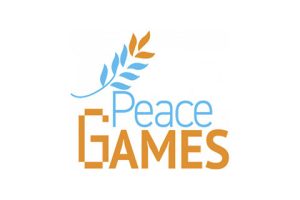EUROPEAN PROJECTS
PEACE GAMES
The Peace Games project, co-funded by the Erasmus+ Programme of the European Union and coordinated by the Forum des Régions Européennes pour la Recherche, l’Education, et la Formation (FREREF), officially started on March 1st, 2021, and will cover a period of 24 months. Peace Games responds to the need of offering advice and orientation to the education community and to individual learners, by developing a structured review of existing games, based on a qualified analysis of learning objectives achievable, and a community hub to engage on peace-oriented online and offline games.

It will be implemented by an international partnership coordinated by the FREREF, which includes the International Institute of Humanitarian Law; Liceo Statale G.D. Cassini (Sanremo); the Asociación cultural Da2 Trucados; the Ministry for Education (MFE) of Malta; theUniversity of Modena and Reggio Emilia; and the Université Côte d’Azur (UCA); FH Joanneum University of Applied Sciences; Evangelische Schule Neuruppin.
Listed below are the objectives and main activities that the Peace Games project will pursue and carry out:
- To explore, analyse and classify the available supply of peace-oriented games on the basis of their relevance to the most pertinent competence frameworks that are currently developed and tested internationally, e.g. the Reference Framework of Competences for Democratic Culture (RFCDC) of the Council of Europe, the Framework of Teachers Competence in Peace Education of the UPPER Erasmus + project (http://eiplab.eu/upper-project), the European Curriculum on Nonviolent Conflict Transformation (NVCT) developed by the EduCATe Project (ERASMUS+);
- To identify, through a substantial mapping exercise based on the competence frameworks, existing gaps and engage the game developers community in the creation of new games addressing the identified gaps, also using existing sets of peace exercises that have not yet taken a game configuration;
- To develop an online hub able to provide information, advice and support to education institutions and educators who are interested to use the potential of games to achieve learning outcomes in these competence areas and engage “indie game development communities” in the creation of new games (e.g. through “thematic game jams” days with young designers, game developing starts up, school teams, etc.);
- To test and validate the use of the online hub and available games in ten pilot schools in five countries and, on a voluntary base, in other local communities and civil society organisations engaged in citizenship education;
- To develop and validate a Guide on “How to use, adopt and adapt game-based learning in traditional education settings ”
- To provide guidance and a collaborative context to individual learners who are already engaged in online and offline games and might discover the interest and life-relevance of peace-oriented games;
- To draw lessons from the review and the online hub activities in order to feed the present education policy debate on citizenship and peace education.